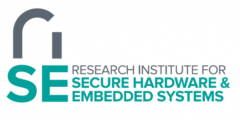The UK Product Security and Telecommunications Infrastructure (PSTI) regime has come into force, effective from 29th April 2024. The regulations apply to businesses that manufacturer, import or distribute connectable products in the UK, i.e. products that connect over the internet or can be networked with other devices. The Security Requirements The security requirements are actions that relevant businesses in the supply chain must take, or requirements that a product must meet, to address a security problem or eliminate a potential security vulnerability. Schedule 1 to the 2023 Regulations sets out the specific requirements that must be complied with in relation
NCSC has approved funding for RISE Phase 2 from 2023-2026, which is hosted under Professor Máire O’Neill at the Centre for Secure information Technology (CSIT), Queen’s University Belfast. 3 new RISE research projects have been funded by EPSRC, bolstering hardware & embedded systems security research. The National Cyber Security Centre (NCSC) – a part of GCHQ – has approved funding for RISE Phase 2 from 2023-2026, which is hosted under Professor Máire O’Neill at the Centre for Secure Information Technologies (CSIT), Queen’s University Belfast. Three new RISE research projects have also been funded by the Engineering and Physical Sciences Research
A lively conversation about whether “Engineering Significant Difference” is the key to enhanced cybersecurity. Contributors: Peter Davies, Security Expert operating at the convergence of Safety and Security.An honorary Fellow with Imperial College’s Institute for Security Science & Technology and chair of the AESIN Security Workstream. He is a leading expert on Countering Cyber Attacks targeted Supply Chain infiltration and Cyber Physical Attacks. He has led the Cyber Security aspects of 3 C-CAV research activities and has 30+ years of verifying security systems in hardware and software. Peter likes to say that he does security where it can’t afford to fail.
The Centre for Secure Information Technologies (CSIT) at Queen’s University Belfast is seeking motivated PhD students to work on the following research topics: Secure IoT devices using Digital FingerprintInvestigating Security Vulnerabilities of Approximate ComputingPractical and Post-quantum IoT securityPractical Privacy-preserving homomorphic analyticsPost Quantum Anonymous CredentialFunctional Encryption and its Application For further information and how to apply, please visit the QUB website for PhD study
Presenting the work of AESIN and the UK Automotive Council and Zenzic, supported by Queens University Belfast, University of South Wales, University of Edinburgh and the Turing Institute and with further support from BSI, this series of workshops is designed to: Present and discuss the limitations with existing standards in meeting the requirements of the Automotive and other mobility industries worldwide Present the methodology proposed by AESIN, UK Automotive Council and Zenzic to achieve operationalizable and legally sustainable cyber resilience In the context of that methodology set out the research agenda and give examples of applying the outcomes of existing
